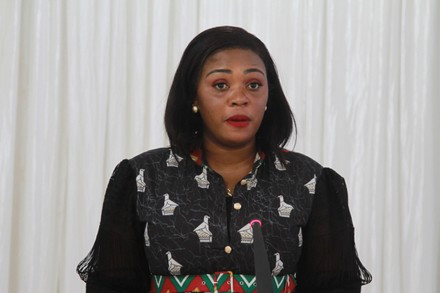
GOVERNMENT and the United Nations Development Programme (UNDP) believe that Zimbabwe’s remote areas will now receive better health services after the country received 136 utility vehicles from the Global Fund to fight HIV and Aids, tuberculosis and malaria, among other diseases.
Speaking during the handover ceremony of the vehicles, Health and Child Care minister Douglas Mombeshora said it was government’s commitment to expand access to quality healthcare services, particularly to remote and hard-to-reach areas.
“These vehicles will go a long way in enhancing access to healthcare services, facilitating the transportation of medical supplies, equipment and health workers, and strengthening our emergency and outbreak response capabilities,” Mombeshora said.
UNDP will be monitoring their usage and how the vehicles are deployed.
The vehicles were provided as part of the Global Fund’s on-going support to Zimbabwe, which has reached over US$2,8 billion since 2003.
This support complements government efforts in the fight against the three major infectious diseases HIV and Aids, tuberculosis and malaria.
“With the help of the Global Fund and UNDP, Zimbabwe has made significant progress in achieving the UNAids 95-95-95 targets, reducing HIV-related deaths by 65% and new infections by 78% in the past decade,” Mombeshora added.
He said on the malaria front, the country was on track to meet the global technical strategy’s target of reducing malaria incidence by 75% by 2025, with incidence dropping from 32 cases per 1 000 to nine per 1 000 between 2020 and 2022.
- ZRBF rescues hunger-prone communities
- Zanu PF old guard retain CC posts
- Zim's 2022 human development ranking very low
- UN piles pressure on ED
Keep Reading
UNDP resident representative in Zimbabwe Ayodele Odusola said: “The handing over of these vehicles is not just a formality, but a testament to UNDP’s dedication to the development aspirations of our country and the mandate of the Ministry of Health.”
Odusola added that the agreement outlined comprehensive asset management requirements, including the provision of monthly vehicle information, location data and maintenance records to UNDP.
Additionally, the ministry should submit quarterly reports on vehicle usage and effectiveness to the UNDP, which will then be transmitted to the Global Fund secretariat.
“UNDP is committed to working hand-in-hand with the ministries to achieve not only national, but also global health objectives,” he said.
This initiative is seen as a significant step in strengthening the country’s capacity to distribute vaccines and improve overall healthcare outcomes.
As the nation continues its efforts to combat the ongoing health crisis, the UNDP support through this vehicle programme is expected to play a crucial role in driving progress.











